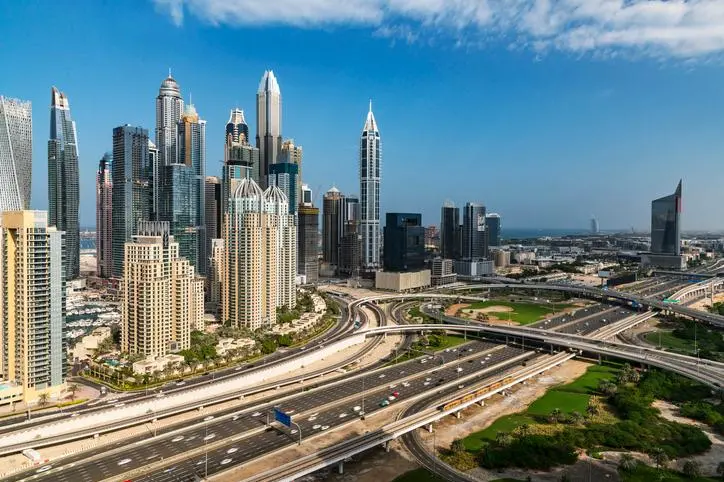PHOTO
With the market abuzz with commentary about excessive supply hurting property prices, Dubai’s real estate sector has begun to realise the need to control supply, a top executive of global real estate consulting firm JLL said.
“There has been a growing awareness that more needs to be done to both stimulate demand and control supply if a more balanced real estate market is to be created,” said Thierry Delvaux, CEO of JLL Middle East and Africa (MEA) in an email interview.
He said several steps taken by the government this year will contribute to this objective and help promote the long-term maturity and growth of the city’s real estate market.
“More recently, the first moves to restrict future supply have been floated with the government announcing the creation of a new ‘higher committee’ for Dubai’s real estate planning,” said Delvaux, who took charge of MEA operation last year.
The higher committee, headed by Deputy Ruler Sheikh Maktoum bin Mohammed and top property developers, has been tasked with introducing measures to improve the balance between supply and demand and ensure that semi-government real estate companies do not compete directly with private investors.
As part of this mandate, he said, the committee will develop a comprehensive strategic vision for all major real estate projects in the emirate for the next ten years.
“This initiative is welcome news for Dubai’s real estate sector and represents a positive step towards achieving a more balanced market for the emirate,” said Delvaux.
He noted that the market will also benefit from the trend of developer priorities shifting from new project launches to the sale of existing inventory.
“We are likely to see a reduction in off-plan launches over the next few years as developers focus on the sale of units in already launched schemes rather than launching new projects,” said the JLL executive, adding that this will assist the market regain balance as the steps taken to increase demand kick in over the coming years.
Prices bottoming out
With residential property prices in Dubai dropping by around 30 percent since the market peaked in mid-2014, JLL said the market is currently poised in the late downturn stage of the property cycle, with the residential sector closest to the bottom.
One major reason for the decline in performance, Delvaux explained, is the excessive levels of new supply entering the market with many new projects being brought onto the market ahead of Expo 2020 that is effectively creating a “cyclical spike” in supply.
“The recent announcement of the government committee to create a more balanced market is, therefore, a positive step that will assist in promoting values and rentals over the medium term,” he noted.
JLL expects residential prices to remain relatively stable over the next six months, with some improvement possible in 2020 if Expo 2020 can be successfully leveraged to increase transaction activity.
Among the subsectors, Delvaux said the retail market is the most-challenged sector and is likely to be the last sector to witness a stabilisation of prices and rentals. On the other hand, affordable housing and logistics are the “most promising sectors” over the next few years.
“This represents a continuation of the growth of interest in alternative real estate assets that has been experienced in the Dubai market over the past few years,” he explained.


Thierry Delvaux, CEO of JLL Middle East and Africa (MEA). Image supplied by JLL
Stimulating demand
There have been several major regulatory changes over the past two years as the government has sought to stimulate the real estate market. Most of these changes, the JLL executive noted, have been aimed at increasing demand, with the major relaxations being to company law (allowing more businesses to operate in Dubai without a local sponsor) and in the visa law (so-called Gold card visa being granted for retirees and selected categories of workers (such as scientists) and others that have invested in the UAE.
“These initiatives will all have a positive impact on real estate values in the medium term as Dubai continues to move towards its long-term vision of creating the major commercial and business for an ever-increasing region including Africa, central and southern Asia,” said Delvaux.
He pointed out that more businesses are showing confidence in Dubai by using the city as their regional hub for an expanding geographic region stretching well beyond the Arabian Peninsula.
“Dubai attracts far more foreign investment in the real estate sector than other cities in the region,” said Delvaux, adding that data from DLD revealed a total of 40 billion UAE dirhams of real estate was purchased in Dubai over the first half of 2019.
More than three-quarters of this total was from foreign investors, which he said, illustrate the attraction of the Dubai market to overseas capital.
JLL analysis revealed that vast majority of this investment is from high net worth private individuals and is heavily focused on the residential sector.
“The market which remains largely illiquid has seen relatively few sales of commercial properties. This is partly a reflection of the shortage of quality income-producing commercial assets being offered to the market,” he said.
Delvaux said Chinese investors will also account for a higher percentage of sales in future years.
“Increase in Chinese interest is being experienced in many different areas of the Dubai market,” he said, adding that involvement of Chinese construction companies (CSCEC was the second largest contractor in Dubai market in 2018) is also growing.
While the Expo 2020 provides an opportunity for Dubai to showcase its capabilities globally, Delvaux said the extent to which the event can stimulate a recovery in the market will depend upon the extent to which the increase in visitors in 2020-2021 is converted into increased sales activity and investment.
“If this is successful, 2020 could represent the bottom of the current cycle,” he concluded.
(Reporting by Syed Ameen Kader; Editing by Anoop Menon)
Our Standards: The Thomson Reuters Trust Principles
Disclaimer: This article is provided for informational purposes only. The content does not provide tax, legal or investment advice or opinion regarding the suitability, value or profitability of any particular security, portfolio or investment strategy. Read our full disclaimer policy here.
© ZAWYA 2019




















